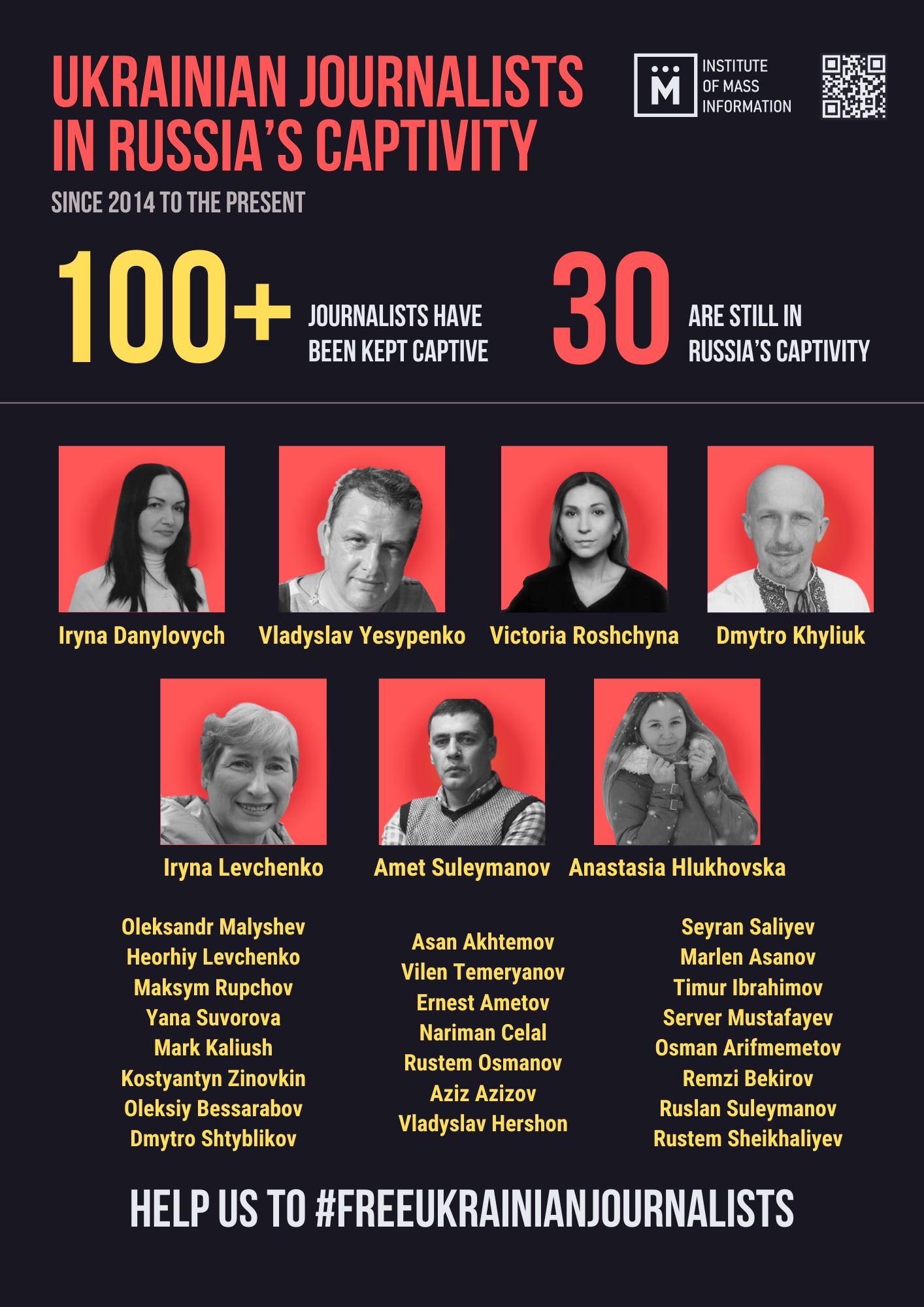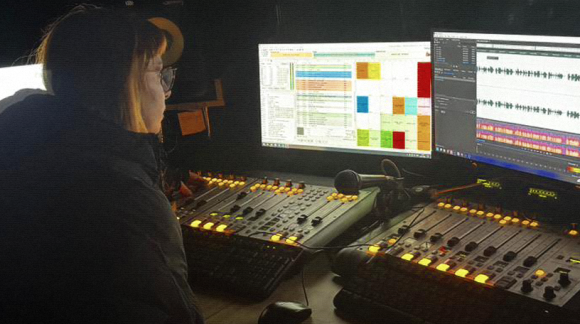At least 100 journalists have been taken hostage by Russia since the beginning of the Russian-Ukrainian war in 2014. No less than 30 Ukrainian media workers are currently detained in Russia.
These data were reported by Kateryna Diachuk, the head of the freedom of speech monitoring department at the Institute of Mass Information (IMI), at the event “Journalists Matter: a call to free Ukrainian journalists held in captivity by the Russian Federation”, which took place during the Parliamentary Assembly of the Council of Europe (PACE) session in Strasbourg (France) on June 26.

The list of Ukrainian journalists detained by Russia. Data by the Institute of Mass Information
Kateryna Diachuk presented the list of captive journalists compiled by the Institute of Mass Information:
- Iryna Danylovych
- Vladyslav Yesypenko
- Victoria Roshchyna
- Dmytro Khyliuk
- Iryna Levchenko
- Oleksandr Malyshev
- Heorhiy Levchenko
- Maksym Rupchov
- Yana Suvorova
- Mark Kaliush
- Kostyantyn Zynovkin
- Oleksiy Bessarabov
- Dmytro Shtyblikov
- Seyran Saliyev
- Marlen Asanov
- Timur Ibrahimov
- Server Mustafayev
- Osman Arifmemetov
- Remzi Bekirov
- Ruslan Suleymanov
- Rustem Sheikhaliyev
- Amet Suleymanov
- Asan Akhtemov
- Vilen Temeryanov
- Ernest Ametov
- Nariman Celal
- Anastasia Hlukhovska
- Rustem Osmanov
- Aziz Azizov
- Vladyslav Hershon
Kateryna Diachuk stressed that all these people are civilians. Still, Russia tries to call them combatants, as was the case with the journalist Dmytro Khyliuk, who was taken to Russia in 2022, while Kyiv oblast was under occupation.
The journalists unlawfully detained by Russia were imprisoned on frivolous charges, mostly with long prison terms (14 to 20 years). According to the IMI, Russia tortures and abuses the detained journalists and withholds medical aid to them.
“Russia is doing this so as not to admit the crimes committed against journalists. After all, it is journalists who record Russia’s crimes, so Russia does not want this information to spread around the world. We have no mechanism for swapping imprisoned civilians as we do with POWs, so it is a stalemate situation. We talk about them, but there is no concrete action,” explains the media expert.
Kateryna Diachuk emphasizes that the families and attorneys of unlawfully imprisoned journalists often have no access to them.
“The IMI has interviewed journalists who had been imprisoned by Russia. They say that the Russian troops occupying our cities had lists of journalists, activists, patriots, and prioritized purging these categories, which may be another evidence of the crime of genocide and warrants special international assessment,” says Diachuk.
The IMI expert called on the international community to start making proactive efforts to release the captive journalists and punish the perpetrators.
“I call on you for concrete action: a real, legally binding international investigation. And to draw on this investigation to bring Russian officials to justice. I call on you to put international pressure on Russia; we must spread awareness about the fate of these journalists, make use of international mechanisms to identify their location and detention conditions,” says Kateryna Diachuk.
In the two years and four months of the full-scale invasion Russia committed 602 crimes against journalists and the media in Ukraine, according to the Monitoring by the Institute of Mass Information.
The Institute of Mass Information (IMI) is a Ukrainian non-governmental media organization that has been operating since 1996. The IMI defends the rights of journalists, analyzes the media field and covers media-related events, fights propaganda and disinformation and has been providing media outlets with safety gear for trips to the combat zone since the start of the Russo–Ukrainian war in 2014.
The IMI carries out Ukraine’s only freedom of speech monitoring and keeps a list of high quality and sustainable online media outlets, documents Russia’s crimes against the media committed in the course of the war on Ukraine. The IMI has representatives in 20 oblasts of Ukraine and a network of “Mediabaza” hubs to provide journalists with continuous support. The IMI’s partners include Reporters Without Borders and Freedom House; the organization is a member of the International Organization for the Protection of Freedom of Expression (IFEX).

